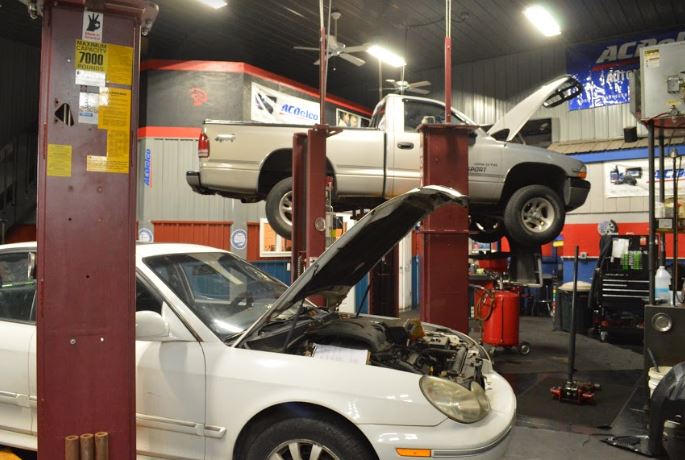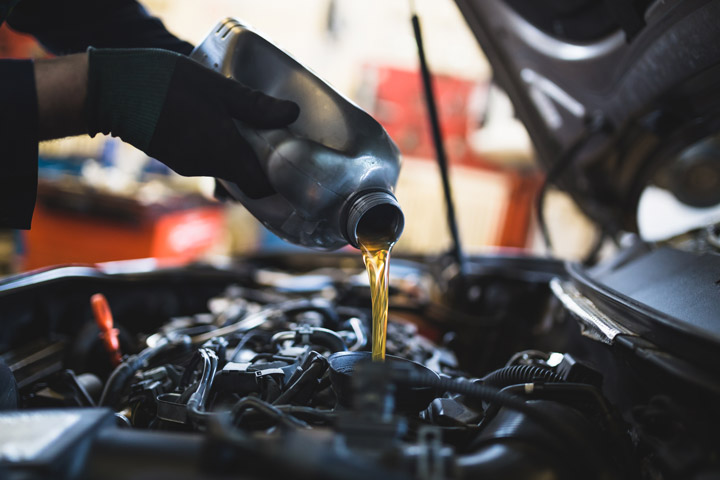All Categories
Featured
A well-maintained engine is the crucial to your car's longevity and height performance. Routine engine tune-ups not just improve fuel performance however also reduce the likelihood of unexpected breakdowns. Whether you're a vehicle lover or someone that merely intends to avoid expensive repair work, these engine tune-up pointers will certainly keep your car running like a dream.

- Replace the Spark Plugs. The spark plugs spark the air-fuel mixture in your engine, and their effectiveness directly influences engine efficiency. With time, trigger plugs can use out, bring about misfires, reduced gas economic climate, and slow-moving acceleration.
During a tune-up, check and replace ignition system if they show indications of wear, such as residue build-up, deterioration, or splits. Depending upon your car, ignition system may require to be replaced every 30,000 to 100,000 miles.
- Check the Ignition System. Your cars and truck's ignition system, which includes the ignition coils, representative, and wires (if appropriate), is responsible for providing the spark that powers your engine. Malfunctioning ignition components can cause beginning problems and harsh engine procedure.
Look for damaged or put on components and replace them during your tune-up. Making sure a healthy ignition system will enhance engine dependability and performance.
- Tidy or Replace the Air Filter. A tidy air filter allows your engine to "breathe" properly by making certain a constant circulation of tidy air. With time, dust and debris can block the filter, decreasing air movement and impacting gas performance.
Examine the air filter throughout a tune-up and change it if it's filthy. For vehicle drivers in dirty or contaminated locations, air filters may require to be transformed more frequently.
- Inspect and Clean the Fuel System. The gas system, consisting of the gas injectors, fuel pump, and fuel lines, can build up down payments with time, lowering fuel delivery and engine performance. Utilize a gas injector cleaner or have your system properly cleansed throughout a tune-up to restore correct capability.
Regularly preserving your gas system ensures far better burning and optimizes your engine's performance.

- Change the Engine Oil and Oil Filter. Engine oil is necessary for lubrication, cooling, and decreasing friction between moving parts. Over time, oil degrades and accumulates debris, shedding its efficiency.
During a tune-up, change the engine oil and oil filter. Adhering to the maker's recommendations for oil type and adjustment periods is essential to keeping your engine in optimal problem.
- Examine the Belts and Tubes. The belts and hose pipes in your engine compartment play important duties in powering components like the generator, water pump, and air conditioning system. Put on and tear with time can lead to cracks, fraying, or leakages.
Inspect the problem of belts and hose pipes throughout your tune-up and change any that show indicators of damage. Proactively resolving these problems can stop expensive fixings and unforeseen malfunctions.
- Check the Battery and Electrical System. A weak or failing battery can leave you stranded. During your tune-up, examination the battery's voltage, evaluate the terminals for corrosion, and guarantee the connections are limited.
In addition, have the alternator and starter inspected to guarantee they're working effectively. Resolving electric system issues early can conserve you from troublesome shocks.
- Check the Air Conditioning System. The air conditioning system prevents your engine from overheating, which can trigger extreme damage. Throughout a tune-up, inspect the radiator, hose pipes, and water pump for leakages or use.
Flush and change the coolant if it's filthy or has actually exceeded its preferred life span. Correct air conditioning system maintenance helps your engine operate within its ideal temperature range.
- Address Control Panel Warning Lights. Modern cars are outfitted with sophisticated analysis systems that light up advising lights when concerns emerge. If your control panel presents any warning lights, such as the check engine light, address them throughout the tune-up.
A specialist auto mechanic can use analysis tools to identify and take care of the issue, stopping tiny problems from rising.
- Maintain Your Engine Clean. A tidy engine runs cooler and is less complicated to inspect for potential issues. Get rid of dust, oil, and crud from your engine bay during a tune-up. Utilize a degreaser and a mild brush for cleaning, and avoid spraying water directly on electric parts.
Verdict: Tune-Ups Are the Key to Engine Long Life. Regular engine tune-ups are a financial investment in your automobile's health and wellness, efficiency, and performance. Whether you're taking on the tune-up on your own or taking your auto to a relied on auto mechanic, following these ideas will keep your engine running at its finest and assist you avoid unanticipated repair work.
Latest Posts
Why Select Washington Fence for Your Automatic Gateway Requirements?
Eye Center South - Vision Care Clinic: Premier Eye Care in Dothan, AL.
Find the Indication: When to Repair or Change Your Roofing System
More
Latest Posts
Why Select Washington Fence for Your Automatic Gateway Requirements?
Eye Center South - Vision Care Clinic: Premier Eye Care in Dothan, AL.
Find the Indication: When to Repair or Change Your Roofing System